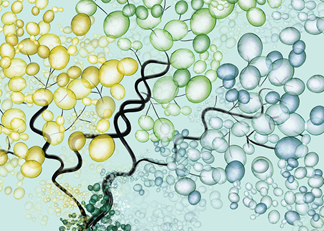Summary
The research interests of the group are focused around the use of comparative genomics and phylogenomics to study the origin, evolution and function of complex biological systems. This includes understanding how specific biochemical pathways, protein complexes or cellular organelles have emerged and evolved as well as using this evolutionary information to gain insight into their function. Through collaborations with experimental groups we apply comparative genomics to discover new mechanisms and genes involved in interesting processes, especially those of clinical relevance (see lines of research). On the technical side, our work often involves the development of new bioinformatics tools and algorithms that we make available to the community. More information at http://gabaldonlab.crg.es
Research projects
- Evolutionary genomics of long, non-coding RNAs. Our group has embarked into a project, funded by the European Research Council that aims to combine state-of-the-art computational and sequencing techniques in order to elucidate what evolutionary mechanisms are shaping this enigmatic component of eukaryotic genomes.
- Comparative genomic of fungal pathogens. By comparing genomes of different species and strains we want to understand what genomic re-arrangements underlie the emergence of pathogenesis.
- Phylogenomics and genome evolution. We combine the development of original algorithms to treat phylogenomic data with its application to gain knowledge on problems of biological relevance.
- Evolution of the eukaryotic cell. We use large-scale evolutionary analyses to investigate the origin and evolution of the two most widespread organelles for which an endosymbiotic origin has been proposed: mitochondria and peroxisomes.
